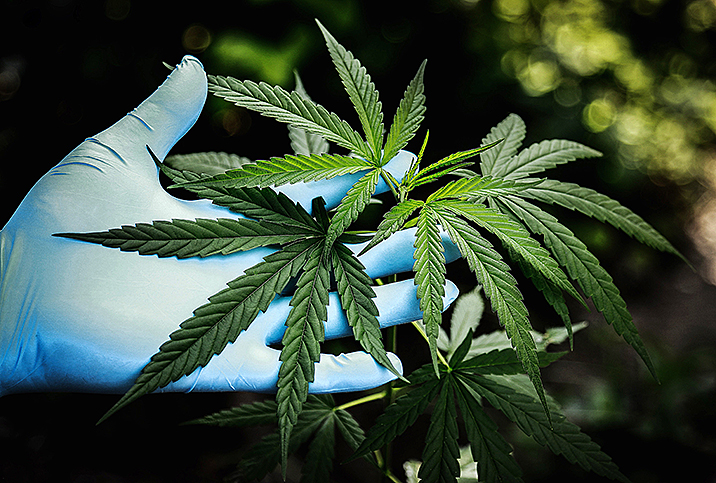What You Can Learn From Sexual Frustration

The term "sexually frustrated" can mean different things in different situations. Maybe it's been used against you as a way of guilting you into sexual interactions you had no intention of consenting to. Perhaps you've used it to describe your own actions as an excuse for bad behavior.
However, sexual frustration doesn't always have to be so negative. While it's born out of a lack of something, it could also help teach you some things about yourself and your partner.
More than just frustration
"The term 'sexual frustration' is deceiving," said Ray Sadoun, mental health and addiction recovery specialist based in London, U.K. "When we are sexually frustrated—that is, craving intimate contact and pleasure—we experience more than just frustration. It can make us feel disappointed, lonely and angry, too."
So much of how sexual frustration affects a person depends on whether or not they validate their own sexual desires, and that satisfying them is their responsibility and theirs alone.
"I have worked with couples extensively over the issue of desire discrepancy," said Cay Crow, a licensed sex therapist and supervisor of sex therapy. "It may work in the short term to 'guilt' a partner into having sex, but over the long term, this dynamic creates resentment and disconnection. It is also a form of coercion that turns the issue into a tug-of-war. Having sex out of obligation is not sexy. The reality is, it is not your partner's responsibility to take care of your sexual needs, or vice versa."
A brief history
While this isn't an exact history of sexual frustration as the term exists today, it's an interesting piece of the past that could help explain why certain emotions, and their subsequent subsiding, were equated with sexual pleasure.
In a piece for Arizona State University's "The Embryo Project Encyclopedia," Rainey Horwitz details how during the late 1800s through the early 1900s, doctors would treat hysteria in women by administering treatment involving early electronic vibrators to stimulate the clitoris.
Despite the labeling of "hysteria," these symptomatic emotions may have been better diagnosed as depression, and the frustrated outbursts as a consequence of that depression. Basically, the doctors were "curing" these symptoms with orgasms. So, it's no wonder expressions of unexplained emotions are often associated with a lack of sexual stimulation.
This isn't necessarily a bad thing. If you're in a healthy relationship and you and your partner use sex as a way to help ease the tensions life brings, more power to you. But just know that there might be some mental health work that might be helpful as well.
A question of libido
If your partner has a higher libido than you—or the other way around—it can feel like one or the other isn't getting what they need.
"While many single people deal with sexual frustration, it is also possible to feel sexually frustrated within a relationship, particularly if your libido is very different from that of your partner," Sadoun explained.
This is an incompatibility issue on a deeper level, which could leave you questioning your relationship. But it doesn't have to be a deal-breaker. Sadoun noted people who get intimate less often are more likely to experience sexual frustration, but it depends on the libido of the individuals, as some people naturally experience minimal sexual desire.
"As a sex therapist, I see sexual frustration as more nuanced than an individual wanting sex but not having an outlet," Crow said. "First of all, masturbation is the obvious remedy to someone who is sexually frustrated. But too many individuals view masturbation as an inferior option. I disagree wholeheartedly. Masturbation is readily available, and the individual gets to focus on their own pleasure and does not have to deal with the machinations of finding or engaging a partner."
The mental component
While a lot of sexual frustration comes down to the physical element of desiring sex without being able to have it, there is a mental aspect as well.
"The emotion behind the experience of sexual frustration is different for each person," Crow continued. "For some people, having sex is one way they soothe themselves emotionally when they are anxious, upset or even angry. For other people, extreme emotion dampens sexual desire. Sexual expression is one of only a few outlets in our society where someone can completely let go and experience a few seconds of transcendence. So when I hear the phrase 'sexually frustrated,' what I hear is a person needing an outlet for repressed emotions, or perhaps an affirmation of connection, or a release of stress from the body,"
If you've been experiencing sexual frustration yourself, there are ways to deal with the actual emotions that make you feel as if sex is the only remedy. It's not.
"Individuals with limited coping mechanisms will be more likely to experience sexual frustration," Crow said. "[Other] coping mechanisms may include exercise and sports, eating a healthy diet, yoga, meditation, socializing with friends and family, and having a good support system."


















